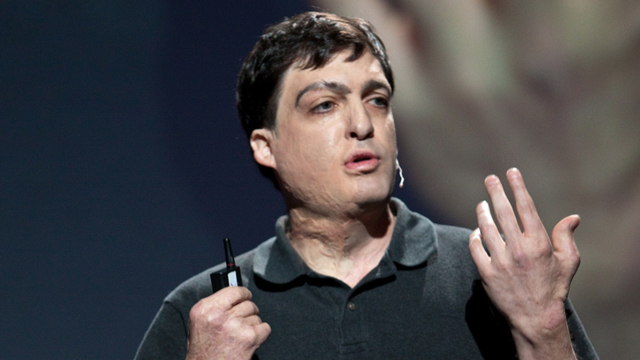Culture & Religion
All Stories
Ernest Hemingway didn’t think so. The author and aficionado of the activity thought it more a drama where the bull and the bullfighter play their respective roles: death and danger.
Robert Wright says that the Internet is scattering our brains, sacrificing individual coherence for a superorganism where people are but single cells of a greater, electronic being.
Online dating is “an incredibly unsatisfying experience,” says Duke behavioral economics professor Dan Ariely, the author of “Predictably Irrational.” In fact, his research has found that each date you set […]
Personalities are typically thought to be genetically determined; not so, says the New Scientist: “We may learn our personalities, and adjust them to situations we find ourselves in over time.”
The author of a new book on race begins with a controversial hypotheses: it was desegregation that destroyed thriving black schools and created a culture of underperformance.
The language police at Salon lament the rise of “No problem” over “Thank you” because, they say, the former shrugs off bonds created by social interaction instead of affirming them.
“It seems like we in the West have made a tradeoff between self-reliance and physical comforts and social well being. So, which is more important?” asks a Notre Dame psychology professor.
The novels of Jules Verne and H.G. Wells, along with relics of Victorian technology, have inspired a new cult following called “Steampunk.” The group celebrates the Victorian spirit.
Elegance does not derive from abundance, the German architect Ludwig Mies once said. In our time of coming financial austerity, could this pre-WWII phrase make a comeback?
Not a recluse in her personal life, before the rights to her poems created feuds between her close associates, the poet’s life was complicated by a love triangle she initiated with a married man.
“It seems fair to conclude that the 81-year-old, Canadian-born [Frank] Gehry is the most important architect of our age,” writes Matt Tyrnauer.
“In all Nabokov’s work, the kindliness of memory recreates Eden, just as perversity razes it to the ground,” writes Lesley Chamberlain. “We can lose our capacity to interpret the world as good. We can see only darkness.”
Theodore Dalrymple is not sure that snobbery is actually a vice. “Everyone needs someone to look down on, and the psychological need is the more urgent the more meritocratic a society becomes,” he writes.
A new survey finds that while people around the world firmly support equal rights for men and women, many believe men should still get preference in jobs and education.
Science fiction writer Catherine Asaro is also a ballet dancer and a math teacher who believes thatphysics and dancing are much more closely related than you might think
Garrison Keillor extrapolates the three stages of life from three generations casually standing on a street corner: Defenselessness, Cluelessness and finally Helplessness.
Anatoly Karpov, the twelfth world chess champion, is one of the most successful chess players in the history of the game. The Russian grandmaster was the world champion for a […]
In her new book, the contemporary philosopher writes that a person who follows “argument rather than numbers is a good person for a democracy to have,” opposing the primacy of short term economic gain.
“Living in another culture and learning the practices of that culture may enhance the psychological processes that make people more creative,” says Psychology Today.
Though thrilling, the penalty shots that might soon decide single-elimination World Cup soccer games are decidedly unfair. More Intelligent Life Magazine considers an alternative method.
“More women are going kid-free by choice, thanks to more accessible and better contraception and a decrease in social stigma related to non-motherhood.” Salon looks at motherhood data.
“A civilised dialogue between the arts and sciences would be a marvellous thing, a takeover would not.” The Telegraph laments the rise of Darwinian analysis in the humanities.
“I realized they were this…enormous force of nature…who determined how the West opened.” Author S.C. Gwynne’s on what inspired his new book.rn
The New York Review of Books considers claims that Americans do not read enough foreign fiction and examines the cost of this alleged, “culturally catastrophic American isolationism.”
Actor and activist Judith Light, who has played a wide variety of major roles on and off the screen over the past three decades says that preparing for a role […]
We received a lot of great contributions for our Bret Easton Ellis question contest! Some of our favorite contributions came from the following Big Thinkers: Arlinda Shtun, who asked: “If […]
Robert Pinsky says that only Marcus Aurelius can compete with Abraham Lincoln for the distinction of world class writer and politician. Pinsky looks at Lincoln’s poem, “My Childhood-Home I See Again.”
“American Psycho” novelist Bret Easton Ellis stopped by the Big Think offices today to chat about his new book, “Imperial Bedrooms,” and the future of fiction writing. Ellis talked about […]
Paul Goldberger, the architecture critic for The New Yorker magazine, came by Big Think’s offices yesterday for an interview. He talked at length about the way that the recession has […]
Profits have plummeted since tools like Napster appeared, and peer-to-peer file sharing has weakened copyright, but has it also benefited all of us, as two academics argue?






